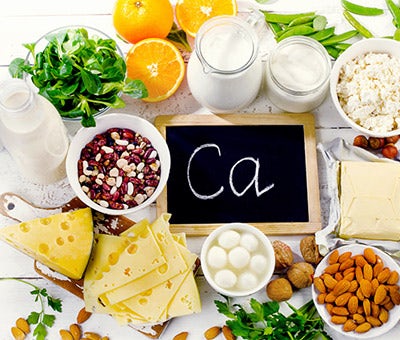Calcium

Nutritional requirements for women
Generally,as well as needing fewer calories than men, women's nutrition have some different requirements than men. The following vitamins and minerals are particularly important to include: Iron, Folic acid, Calcium, Riboflavin;
Calcium
Another key mineral to consider is calcium. Both men and women (over the age of 19 and not breastfeeding) are recommended to consume around 700mg of calcium. This should be easily acquired from your diet. Although the recommendation is the same for men and women, as women consume fewer calories, the proportion is larger.
Women start to lose bone density from 35-years-old onwards and are thought to be more prone to developing conditions such as osteoporosis because of this. This is especially the case for when a women is past the menopause as calcium requirements typically increase.
Foods that contain calcium include dairy products, green leafy vegetables, nuts, soya beans and fish where you eat the bones (i.e. sardines).
Vitamin D is particularly important and helps regulate the amount of calcium and phosphate in the body. Vitamin D comes in 2 forms, and we will all be able to acquire Vitamin D from the sun. As well as Vitamin D rich foods include; oily fish, eggs, dairy and foods fortified with the vitamin.